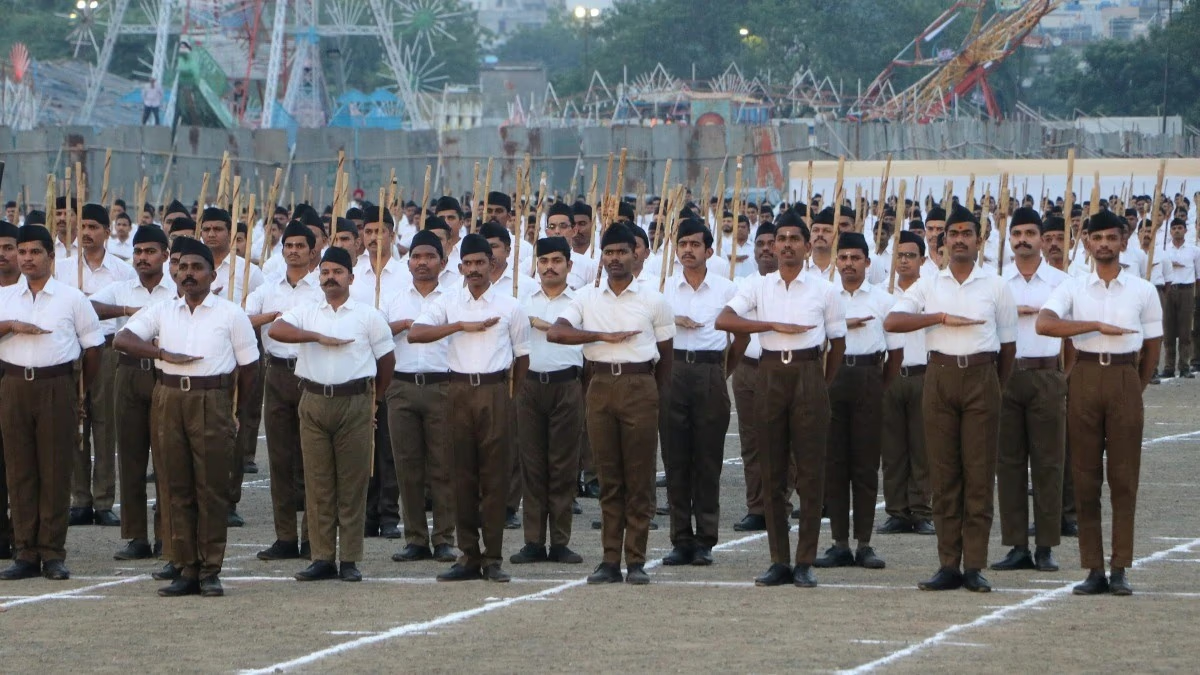Government employees are now permitted to participate in activities of the Rashtriya Swayamsevak Sangh (RSS). The central government has lifted the 58-year-old ban on government employees participating in RSS activities. This order has caused a stir in political circles, with the opposition heavily criticizing this decision. Congress leader Jairam Ramesh voiced his opposition through a post on his social media. Former Chief Minister of Uttar Pradesh, Mayawati, has demanded the reversal of this decision. Although the RSS is not a political organization, its ideology aligns closely with that of the ruling Bharatiya Janata Party (BJP). It is generally believed that the RSS and the BJP, though separate entities, are so intertwined that they cannot be separated.
Civil services in India are designed in such a way that while governments come and go, civil servants remain. However, civil servants are accountable to the party forming the government. This is why ministers are held responsible for the mistakes of government employees. For instance, when two people died in a train accident, the then Railway Minister Lal Bahadur Shastri took responsibility and resigned. This trend continued later, with leaders taking responsibility for bureaucratic actions. That’s why bureaucracy has been kept away from politics, but now with this order allowing participation in RSS programs, it will be clear that certain officers are loyal to the BJP. This change is both a potential threat to the future of bureaucracy and a ray of hope.
The American bureaucracy has a system where the ruling political party appoints people aligned with its ideology to major positions. This has been termed as the 'spoils system' due to perceived favoritism. While this system is not formally practiced in India, it exists in a similar form. During the five decades of Congress rule, individuals aligned with Congress occupied significant positions in central and state government undertakings, educational, cultural, and academic institutions. Since 2014, the inclusion of right-leaning individuals in these institutions has been ongoing. This recent order from the central government aims to extend party ideology to the lower levels of bureaucracy.
However, the law bars government employees from joining any political party. The government employee manual clearly states that no government employee shall be a member of or otherwise associated with any political party or any organization that takes part in politics, nor shall he or she participate or assist in political activities.
Why the Sudden Need for BJP?
Questions arise as to why the BJP-led central government suddenly issued such a notification. For the past 10 years, the BJP has been in power and had never considered lifting the ban on RSS before, not even during the administration of Atal Bihari Vajpayee from 2000 to 2004. It is said that RSS leaders recently criticized the BJP, causing the party to become internally troubled, prompting this move to maintain harmonious relations with RSS.
Another reason might be the BJP's poor performance in the recent Uttar Pradesh Lok Sabha elections, with party insiders believing that officials did not support party workers. It is alleged that in some districts, despite the BJP's rule in Uttar Pradesh, names of BJP voters were removed from electoral rolls. During the party executive meeting, officials were accused of helping the opposition. This highlights the scarcity of loyalists within the administration, with the government aiming to increase this number by leveraging the cultural organization status of RSS.
Congress leader Jairam Ramesh fears that bureaucracy could now be influenced by the RSS ideology. Every government has its agenda and election promises, and to achieve these, it needs like-minded individuals within the administration. During Modi's first two terms, the government managed with the existing bureaucracy but now seeks faster implementation of its policies, necessitating recruitment of those who align with its ideology.




